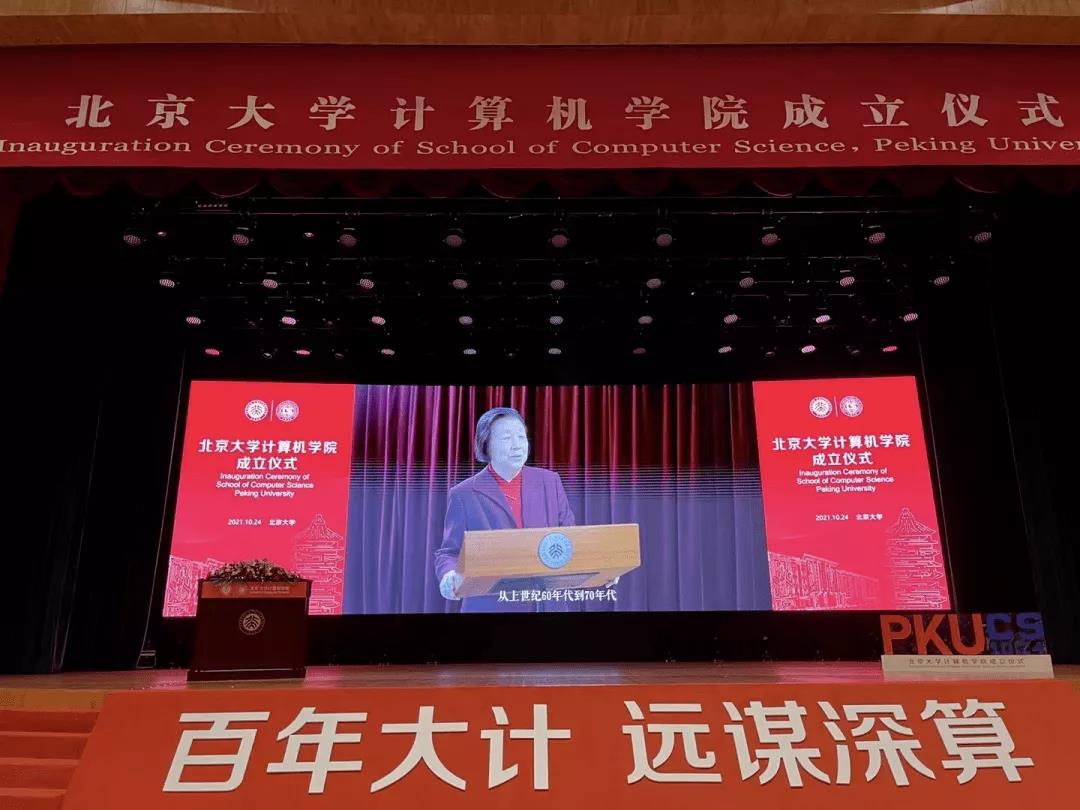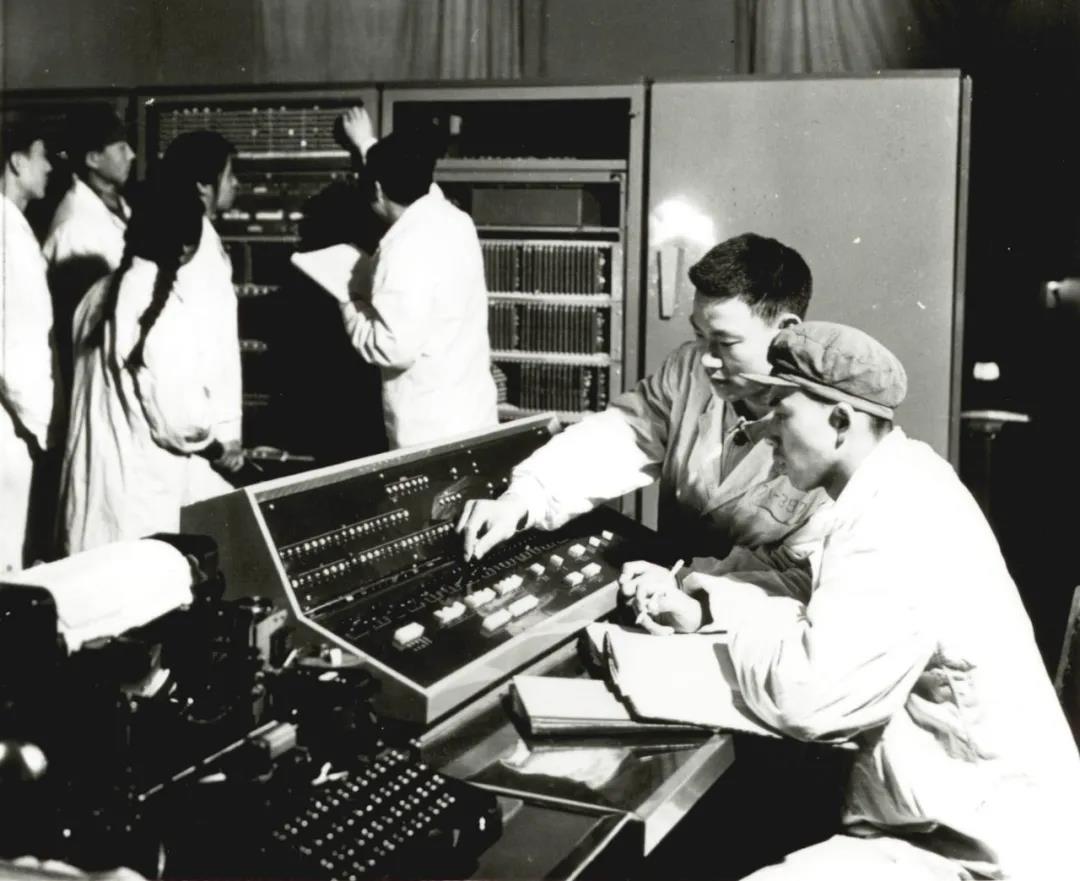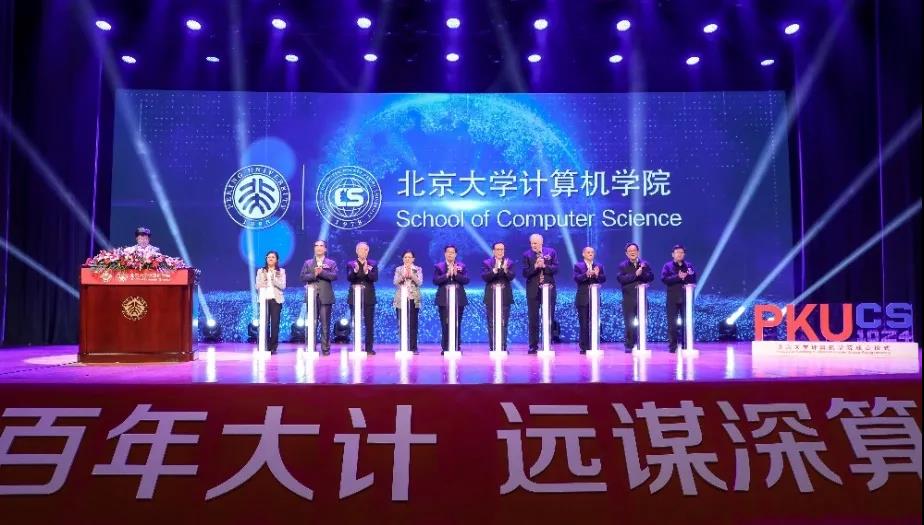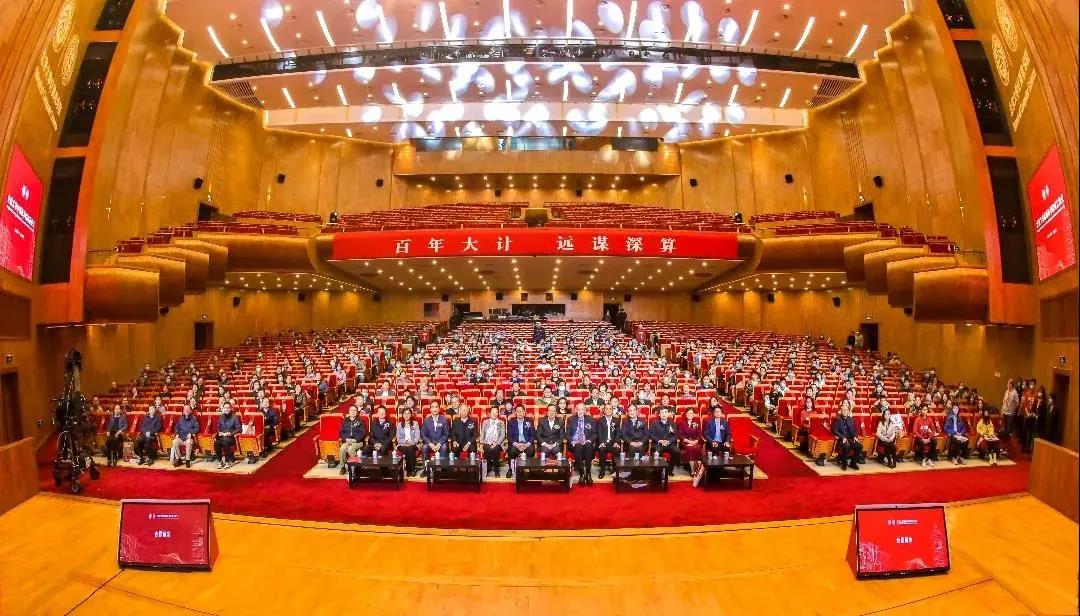Peking University, September 3, 2021: On 24th October 2021, the Peking University School of Computer Science
was established. Professor Yang Fuqing, honorary dean of the School of
Computer Science, delivered a speech during the opening ceremony.
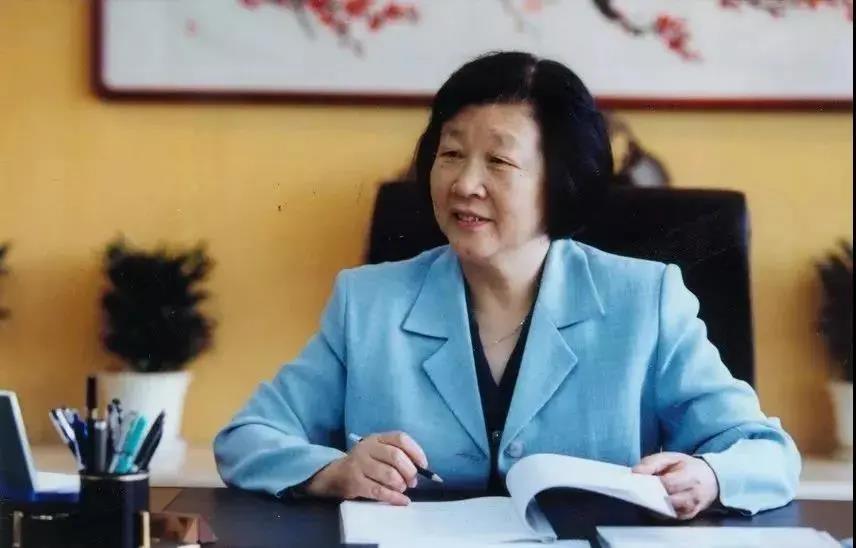
Professor Yang Fuqing
As a pioneer in the field who has weathered the rocky development of
China's computer science field in the past half century, her speech
brings us a story of 'rags to riches' and bright prospects for the
future, mapping the history of Computer Science at PKU against the ebbs
and flows of economic development in China.
Yang Fuqing delivering her speech
Humble beginnings: urging development in a new nation
The People's Republic of China emerged from the depths of war plagued by
economic debilitation. In 1956, Premier Zhou Enlai drafted the "12-year
Science and Technological Development Plan" to prepare China for a
journey of intensive industrial growth. Despite lacking information,
experience and equipment, the discipline of computer science (CS) at PKU
emerged in 1959 following the establishment of a CS program under the
Department of Radio Electronics to meet China's developmental needs.
The early days of CS in China were tough ones. The 1960s and 1970s saw
China simultaneously facing a technology blockade and an urgent need for
mainframe computers to ameliorate energy shortages. A team from PKU was
thus commissioned to develop a large-scale integrated circuit computer
that could process one million operations per second, and they
delivered. Against all odds, a group of dedicated young people completed
China's first MOPS (millions of operations per second) computer, named
Model 150, unlocking a technological milestone for the nation.
A team from PKU developed China's first integrated circuit computer with one million operations per second
Propelling forth: Computer Science in a digital era
Computer Science in PKU took off with Reform and Opening Up, where new
plans for greater development called for new technologies and scientific
innovation. As such, the same youth behind Model 150 founded the PKU
Department of Computer Science and Technology in 1978, which at the time
was the only department in China to incorporate both software and
hardware into their curriculum.
In 1983, scientific technologies was identified as a 'primary productive
force' in propelling socio-economic development, and China started to
nurture its software industry. The growing nation also required new
talent in an age of productivity, and university education was seen as
central to fostering skilled talent pools. The department rose to the
task by strengthening its teaching force and upgrading learning
environments and the curricula. In 1995, the department's computer
science and technology degree was among the first batch of tertiary
programs to be officially designated as first-level disciplines. In
2002, another two of their programs were recognised as national key
disciplines. Owing to the relentless efforts of both faculty and
students, the department flourished into a renowned and influential
institution for scientific research and nurturing talent.
Entering the 21st century, rapid technological development has further
hastened the ever-changing landscape of CS, warranting new approaches to
research and education. In order to stay abreast of shifting global
trends, PKU's CS education has constantly improved and adapted itself.
2002 saw the establishment of the School of Electronics Engineering and
Computer Science, and 19 years later, PKU once again adjusted its goals
to promote emerging engineering programs and better serve the national
strategy. This mission takes shape in the newly founded School of
Computer Science.
Launching ceremony of the School of Computer Science
Taking flight: Towards development in the new age
The 21st century is an age of scientific and industrial revolution.
China, an emerging tech giant, looks to upgrade industrial structures
and lead innovation in the new age. As such, President Xi has stated
that "higher institutions, especially double first-class universities,
should lead the cultivation of talents in basic research, plan the
cultivation of talents in basic disciplines on all fronts, construct
bases to this end, and cultivate high-level interdisciplinary talents.
Launching ceremony of the School of Computer Science
In line with national development strategies, Yang Fuqing provided three
suggestions for the new school. Firstly, she emphasized building a
strong theoretical foundation to propel breakthroughs in CS research.
Secondly, the school should aim to cultivate professionals who are
willing to contribute to the nation's development. Lastly, undergraduate
education should be prioritised and kept up-to-date with the newest
technological advancements.
While PKU's CS education has seen multiple changes in response to the
differing demands of each stage in China's development, the central aim
remains the same-to foster generation after generation of skilled,
innovative and devoted youth capable of riding emerging waves and
driving economic and technological development in China.
About the speaker
Professor Yang Fuqing, Academician of Chinese Academy of Science, is
among the first generation of computer scientists and a well-known
expert in software engineering in China. She led the PKU team in
developing the Model 150 computer and played a big part in designing the
operating system. In the 1980s, she spearheaded the Jade Bird Project,
which initiated industrial production of software in China. She has
received numerous titles and awards in her career, such as the Science
and Technology Progress Award of the Ho Leong Ho Lee Foundation,
Lifetime Achievement Award of the China Computer Federation, and State
Science and Technology Progress Award (Second Class) to name a few.
Writer: Chan Zi Qing
Editor: Li Wangqi
Source: PKU News(Chinese)

